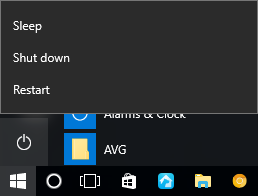Experts say that the world’s data is doubling every two years. This epic increase in Big Data has highlighted the limitations of reliance on traditional forms of data storage and management while also focusing attention on new methods for addressing the volume and variety and veracity of structured and unstructured data. In these discussions, one of the terms you’ve undoubtedly heard lots of buzz around is the expression “NoSQL.”

NoSQL databases grew rapidly in popularity over the last several years and the market outlook is great. In fact, NoSQL has emerged as the preferred choice for mobile and web development. So let’s stop and consider the most important points you should be considering about NoSQL. What is most critical to know at the current stage in this exciting market? In the following we outline the top 5 things you should know about NoSQL as it stands today.
NoSQL represents a deliberate shift away from relational DBs
NoSQL is a technical term that means either “No SQL” or “Not only SQL” and represents a paradigm shift away from sole reliance on relational databases. Relational databases (RDMS) emerged in the 1970s and were based on a set of data tables that could be queried and matched based on languages like SQL. These database architectures were ‘structured’ meaning that the data was organized in a uniform format and varied little over time.
NoSQL architecture has clear advantages
There are a number of types of NoSQL databases such as Key Value Pairs, Column Family Stores, Graph Databases, Document Databases. Key Value Pairs are the most popular and represent a fundamental method for representing data in computer systems and applications. In this schema a unique key exists for a particular object that needs to be returned; querying the database for that unique key will return results from whichever node has the object.
NoSQL is also much more scalable, data can be ingested without a predefined schema, and development is faster and code integration more reliable. This all translates into bigger and faster application changes in real-time.
NoSQL is also much more scalable, data can be ingested without a predefined schema, and development is faster and code integration more reliable. This all translates into bigger and faster application changes in real-time.
NoSQL has a wide range of applications and use cases
There are any number of applications for NoSQL data storage and processing solutions today, ranging from user profile stores, to eCommerce sites, to mobile applications. Netflix is one high profile example of a major organization that migrated from Oracle to the NoSQL database Cassandra to help it better stream huge amounts of content to millions of customers worldwide each day. There are a growing number of possible use cases for how organizations today can leverage the benefits of NoSQL.
NoSQL is great for small businesses
The ability to deliver high-volume, high-variety online applications for a fraction of the cost that it took with traditional methods, is also one of the reasons why NoSQL technologies are an appealing solution for smaller organizations with limited budgets. Some of the top NoSQL databases on the market today include MongoDB, MarkLogic, Couchbase, CloudDB, and Amazon’s Dynamo DB. Each vendor has emerged with robust, scalable, cloud-based solutions that allow for rapid processing of real-time Big Data applications – all in ways that are affordable.
The NoSQL outlook is strong
The market is a formidable one with projected growth forecast to reach $3.4 Billion in 2020, representing a compound annual growth rate (CAGR) of 21% for the period 2015 – 2020. With the massive growth expected in the Internet of Things market and the enormous Big Data sets this will produce, small businesses would be well advised to start looking seriously at NoSQL and start taking measures to adopt the latest benefits of this technology.




